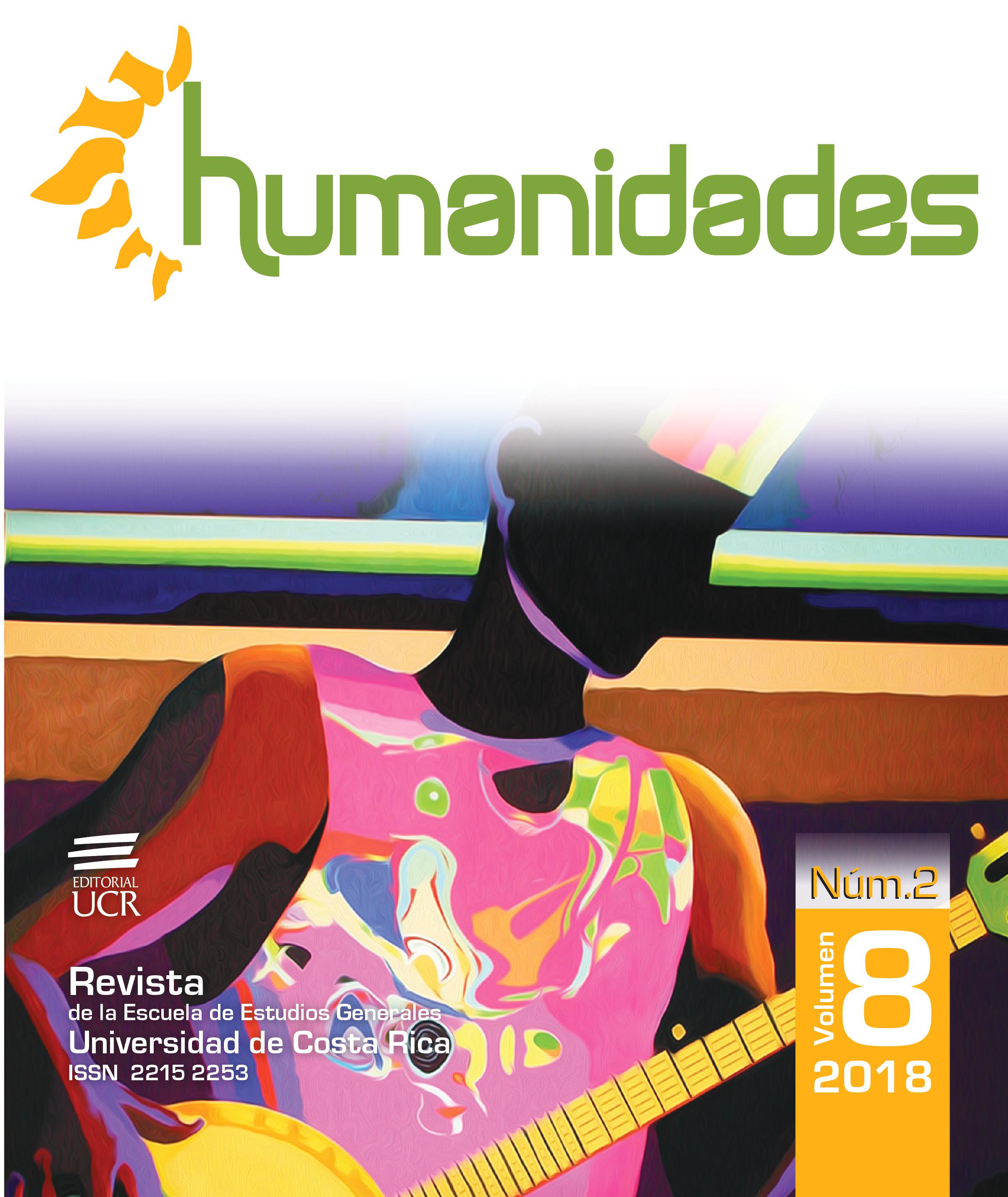Abstract
The article explains, using decolonial, postcolonial and decolonial feminist theoretical tools, the tensions and disputes in the novel Calypso, by Tatiana Lobo, around the integration of the south of the Limón province, main setting of the text, to the Costa Rican national State project. The article analyzes the contrapuntal interaction of knowledge and voices, both local and external, that is, from the hegemonic Costa Rican culture, through the three generations narrated in the novel and through which the integration occurs. Also, the text analyzes aspects such as the units of production, religion, education, women, ways of life and the results of such tensions.References
Bidaseca, K. (2010). Perturbando el texto colonial. Los estudios (pos) coloniales en América Latina. Buenos Aires: Editorial SB.
Castro-Gómez, S. (2000). Ciencias sociales, violencia epistémica y el problema de la invención del otro. En E. Lander (Comp.), La colonialidad del saber: Eurocentrismo y ciencias sociales (145-161). Buenos Aires: CLACSO.
Chen, J. (2008). Las limitaciones del exotismo: el bondadoso negro en Calypso, de Tatiana Lobo. en Silvia Nagy-Zekmi (Ed.). Moros en la costa. Orienta-lismo en Latinoamérica, Madrid: Iberoamericana, 2008
Coello, E. (2010). De paraísos, asaltos y laberintos. Notas a la novelística de Ta-tiana Lobo. Centroamericana, 19, 23-36.
Du Bois, W. E. B. (1992). This Double Consciousness. En C. Ricks (Ed.), The Faber Book of America (pp. 101). Londres: Faber.
Germaná, C. (2010). Una epistemología otra: El proyecto de Aníbal Quijano. Nómadas, 32, 211-221. Recuperado de: http://www.redalyc.org/articulo.oa?id=105114733014
Hernández R. (2011). Feminismos poscoloniales: Reflexiones desde el sur del Río Bravo. En L. Suárez y R. Hernández (Eds.), Descolonizando el Feminismo: Teorías y Prácticas desde los Márgenes (pp. 68-101). Madrid: Ediciones Cátedra.
Jiménez, A. (2002). El imposible país de los filósofos. San José: EUCR.
Lara, I. (2007). Beyond Caliban’s Curses: The Decolonial Feminist Literacy of Sycorax. Journal of International Women’s Studies, 9(1), 80-98.
Lobo, T. (1996). Calypso. San José: Ediciones Farben.
Mignolo, W. (2007). La colonialidad: la cara oculta de la modernidad. Cultural Studies, 21(1-2), 39-50.
Mohanty, C. (2011). Bajo los ojos de Occidente: Feminismo académico y dis-cursos coloniales. En L. Suárez y R. Hernández (Eds.), Descolonizando el Feminismo: Teorías y Prácticas desde los Márgenes (pp. 112-161). Madrid: Ediciones Cátedra.
Molina, I. (2003). Costarricense por dicha: identidad nacional y cambio cultural en Costa Rica durante los siglos XIX y XX. San José: EUCR.
Ovares, F. et al. (1993). La casa paterna: escritura y nación en Costa Rica. San José: Editorial de la Universidad de Costa Rica.
Pratt, M. (2010). Ojos imperiales: Literatura de viajes y transculturación. Méxi-co: Fondo de Cultura Económica.
Quesada, A. (1986). La formación de la narrativa nacional costarricense. San José: Editorial de la Universidad de Costa Rica.
Quijano, A. (1992). Colonialidad y modernidad/racionalidad. Perú indígena, 13(29), 11-20.
Restrepo, E. y Rojas, A. (2010). Inflexión decolonial: Fuentes, conceptos y cues-tionamientos. Popayán: Editorial de la Universidad del Cauca.
Singer, D. (2006). La construcción de la identidad nacional patriarcal en Misterio, de Manuel Argüello Mora. Letras, 39, 87-105. Recuperado de: http://www.revistas.una.ac.cr/index.php/letras/article/view/878
Wynter, S. (1990). Beyond Miranda’s Meanings: Un/Silencing the ‘Demonic Ground’ of Caliban’s ‘Woman’. En A. Donnell y Lawson, S. (Eds.), The Routledge Reader in Caribbean Literature (pp. 416-424). London: Routledge.


